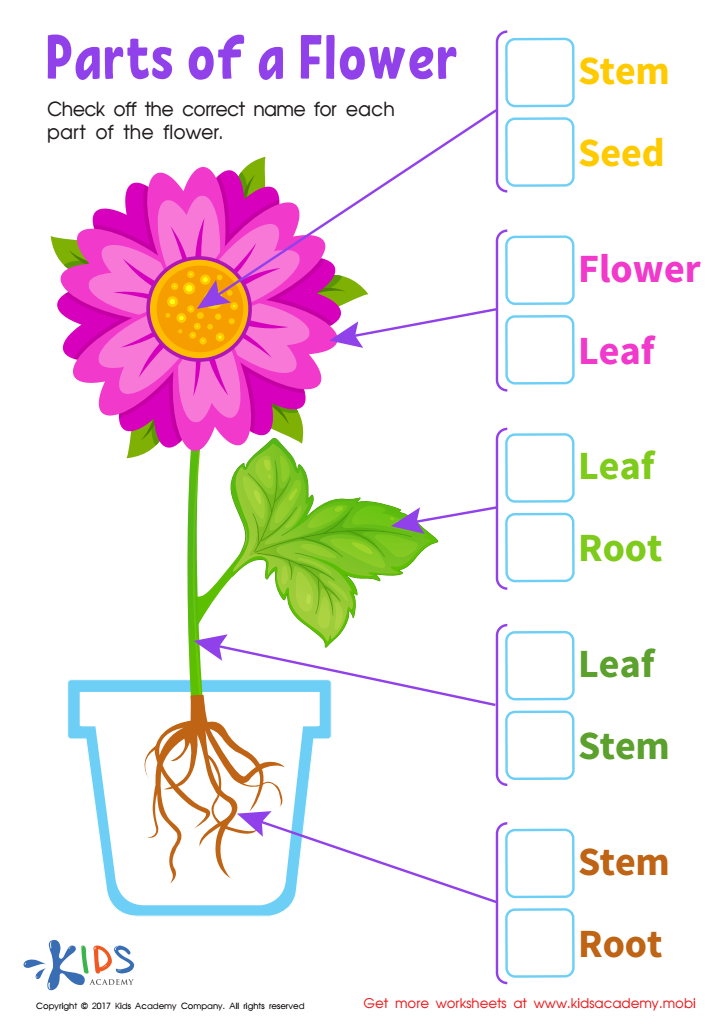Life Science Worksheets for Ages 6-9
3 filtered results
-
From - To
Explore our engaging Life Science Worksheets designed specifically for children aged 6-9! These worksheets provide an exciting way for young learners to discover the wonders of the natural world. Covering key topics in life science such as plants, animals, ecosystems, and human biology, our resources encourage curiosity and hands-on learning. Each worksheet is crafted to spark interest, enhance observational skills, and foster a love for nature. Perfect for both classroom use and at-home learning, these interactive activities include colorful illustrations and fun facts, making science accessible and enjoyable. Dive into the world around us and watch your child's understanding of life sciences flourish!


Parts Flower Printable


Herbivores Printable


Carnivores Worksheet
Life science for ages 6-9 is crucial for fostering curiosity and understanding about the world. During these formative years, children are naturally inquisitive, making it the perfect time to introduce them to scientific concepts related to living organisms. Engaging with life science helps children explore fundamental topics such as plants, animals, ecosystems, and human biology, laying a strong foundation for future scientific learning.
For parents and teachers, understanding life science cultivates critical thinking and problem-solving skills. It encourages children to observe, ask questions, and make connections in their environment, promoting a love for learning. This foundational knowledge can impact children's everyday decisions, like understanding nutrition and respecting biodiversity, nurturing responsible and informed citizens.
Additionally, exposure to life science enhances literacy and numeracy skills as students engage with data, charts, and observations. It also fosters teamwork through collaborative projects and experiments, enriching social skills. As children learn the importance of collaboration in scientific work, they become better communicators and kind members of the community. Ultimately, prioritizing life science in early education empowers children to appreciate the complexity of life and inspires them to protect and care for the natural world.
 Assign to My Students
Assign to My Students






.jpg)








